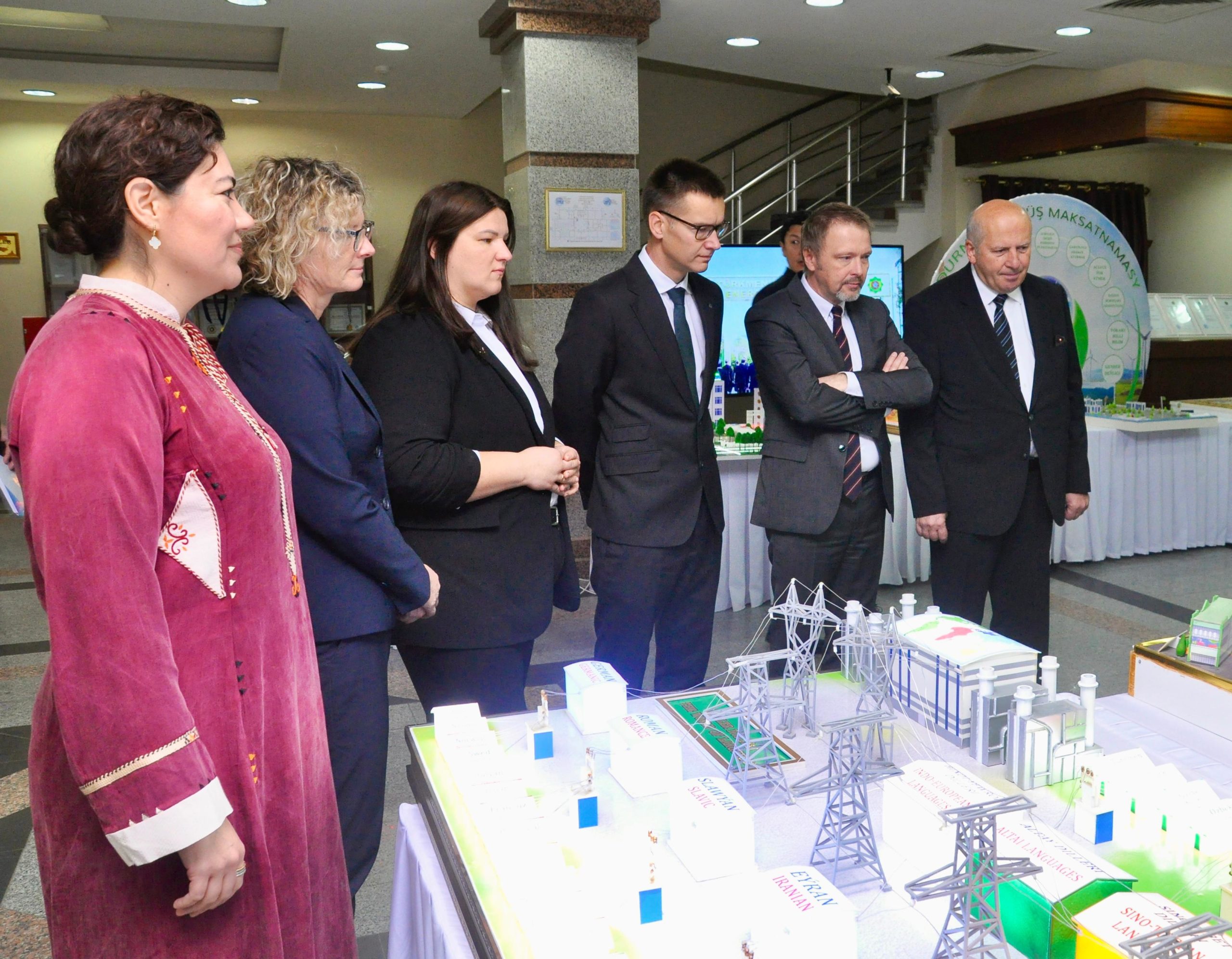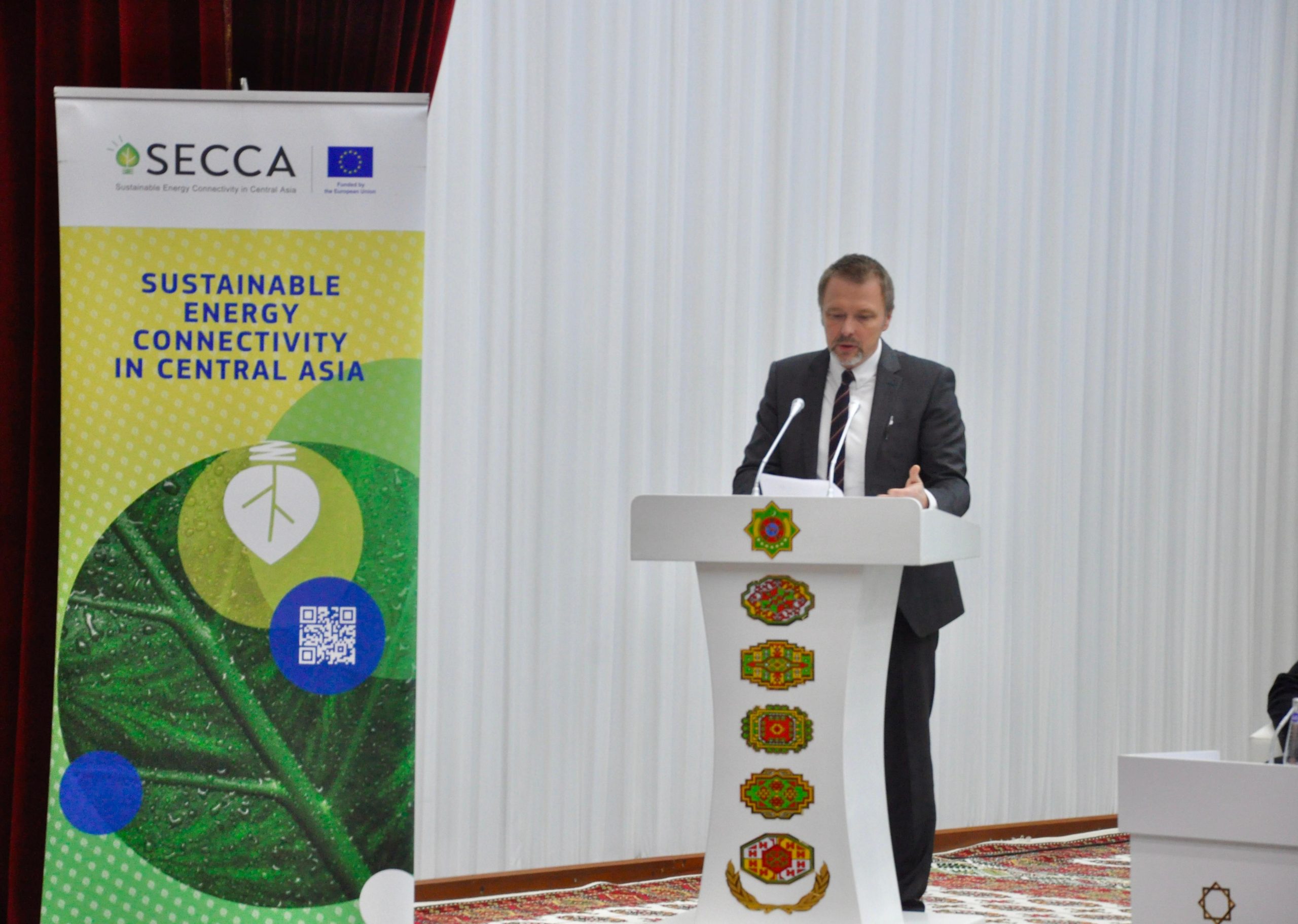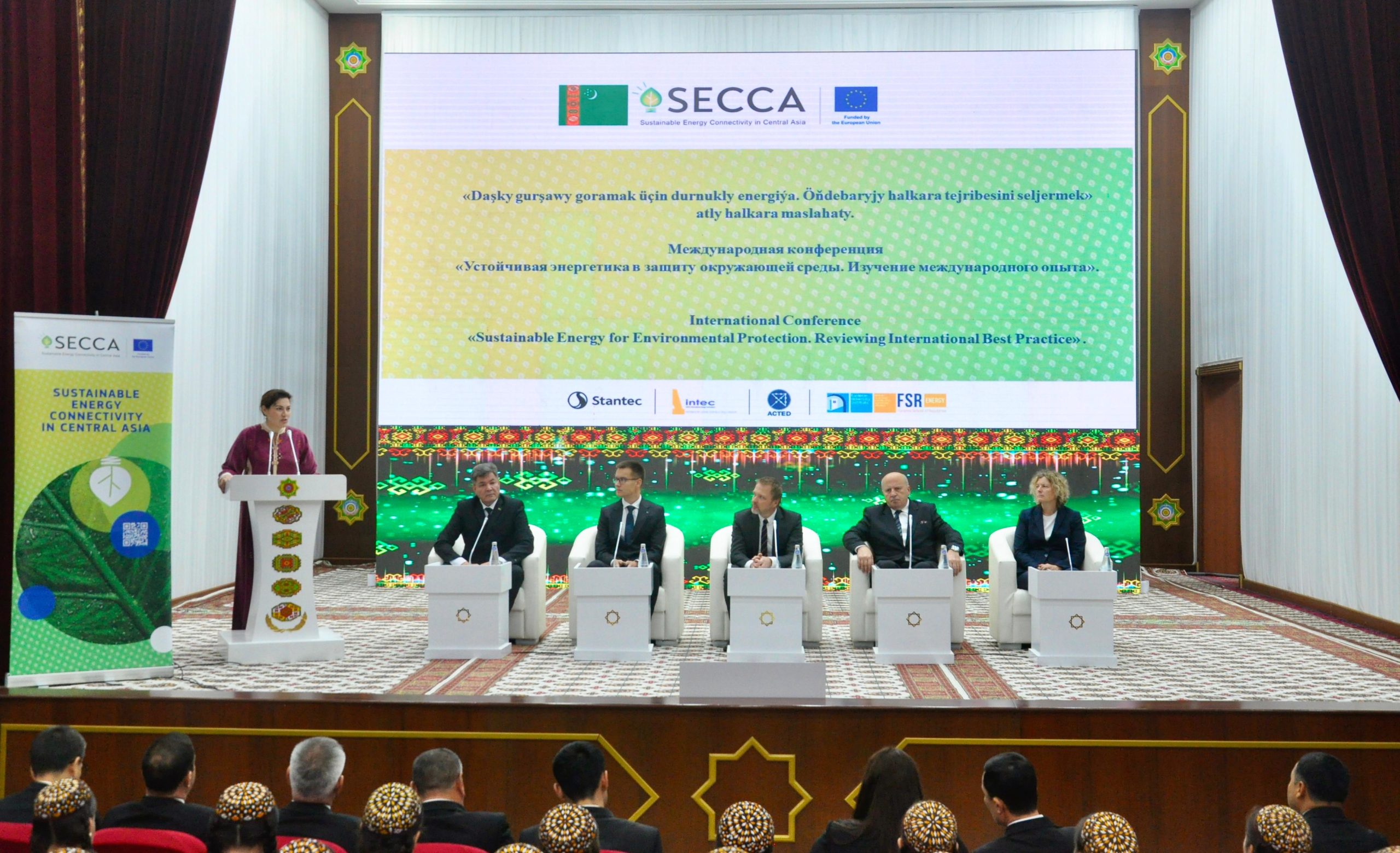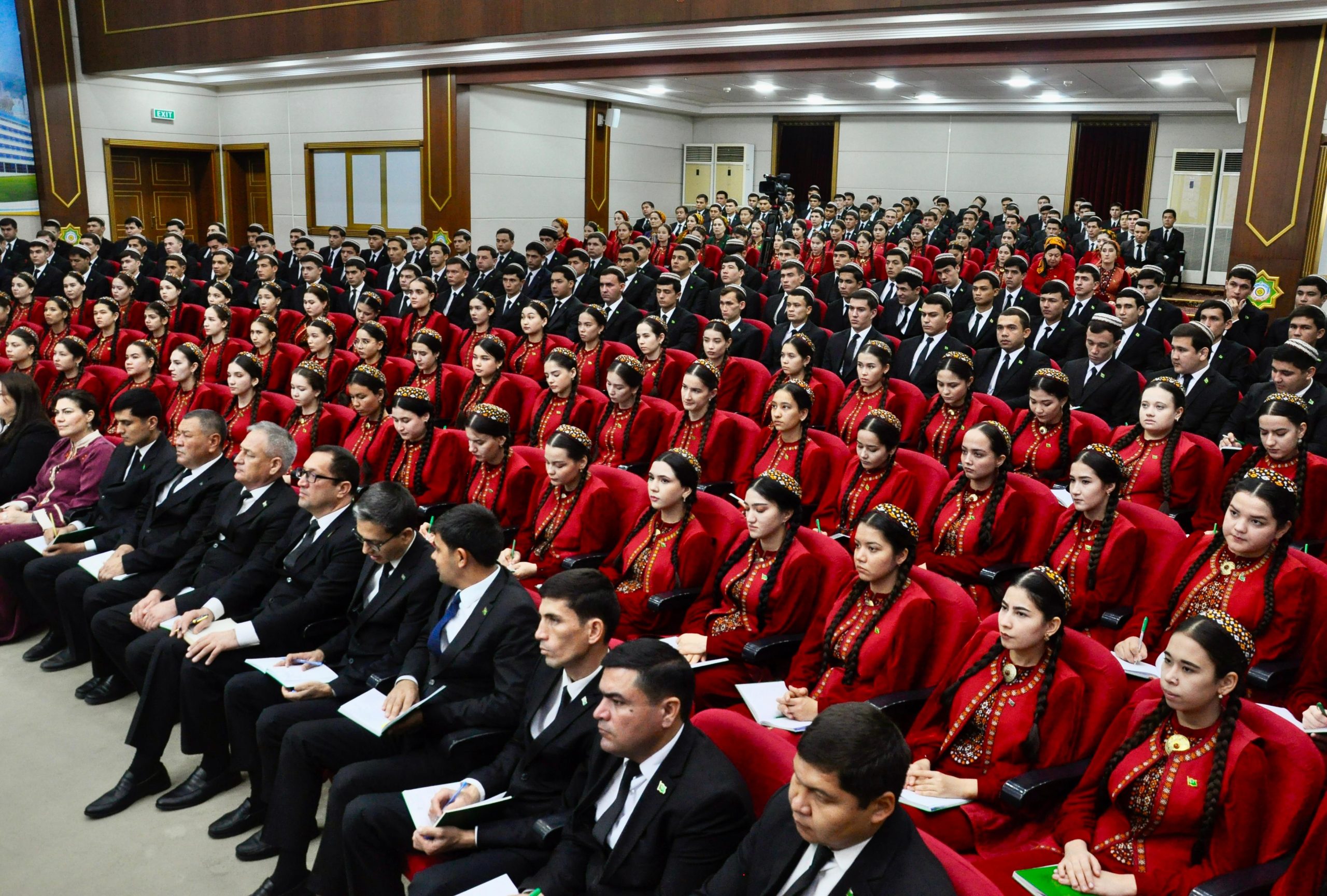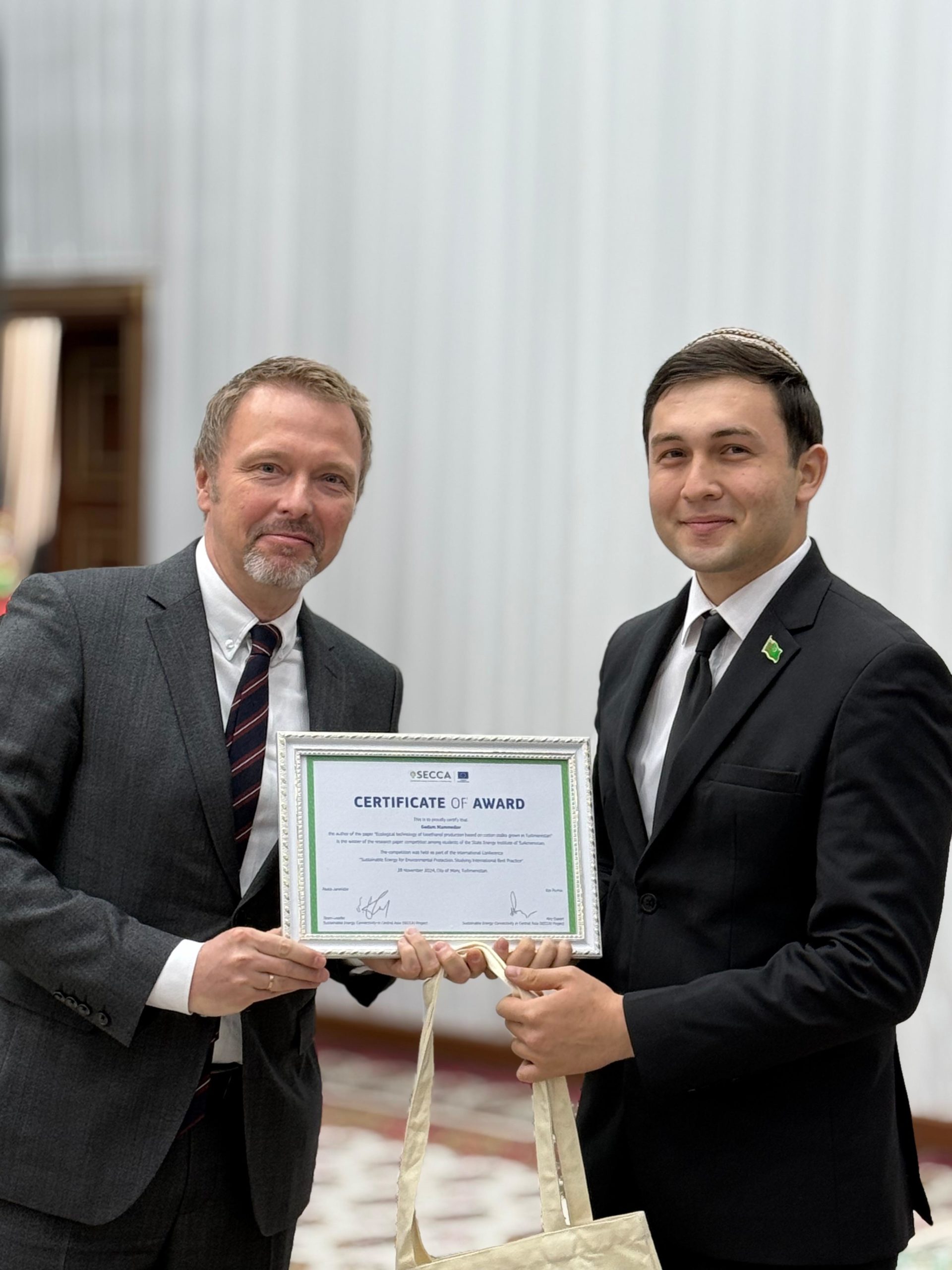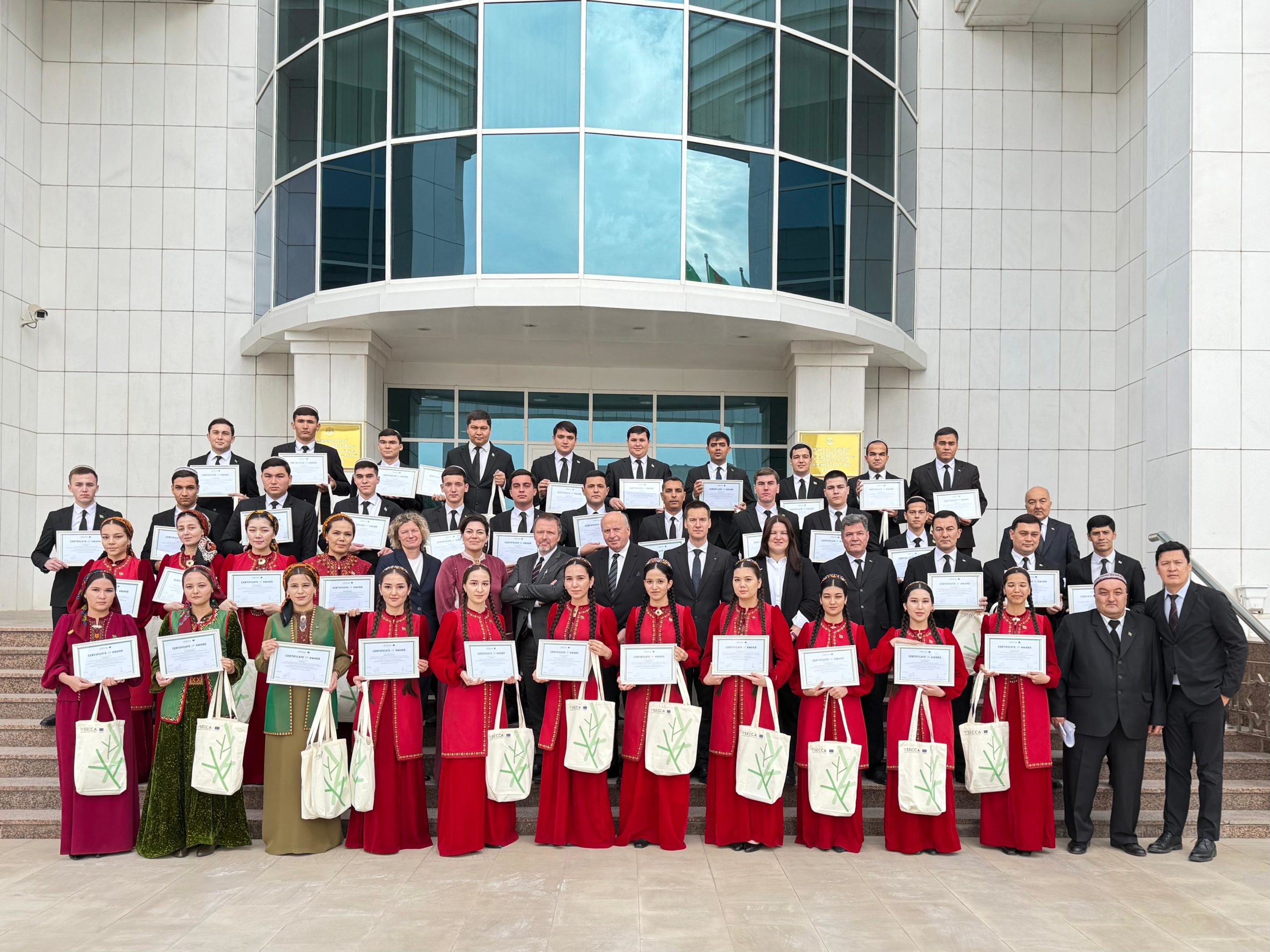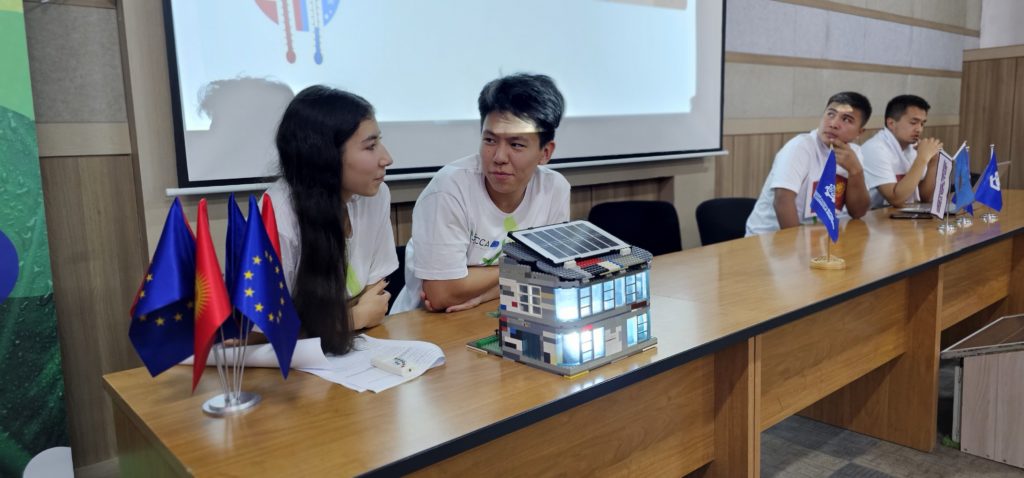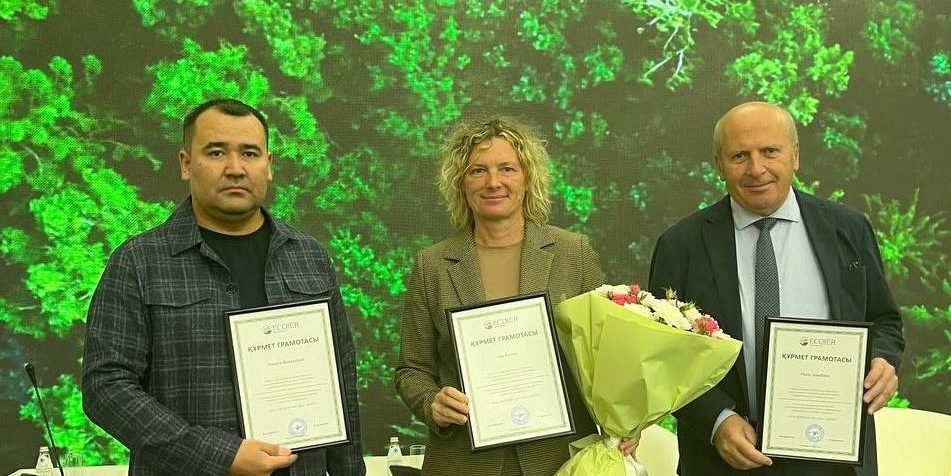Mary, Turkmenistan – National stakeholders, policymakers, energy experts, representatives of professional associations, academia and international organisations attended the International Conference “Sustainable Energy for Environmental Protection – Reviewing International Best Practices”.
The event was organised by the Ministry of Energy of Turkmenistan, the EU-funded project “Sustainable Energy Connectivity in Central Asia (SECCA), and the UNDP project “Sustainable Cities in Turkmenistan: Integrated Green Urban Development in Ashgabat and Awaza”.
The conference emphasised Turkmenistan’s commitment to promoting sustainable energy. The country is currently reviewing strategies and mechanisms for renewable energy and energy efficiency deployment.
Addressing the participants of the Conference, Mr Robert Brudzynski, Programme Manager at the EU Delegation to the Republic of Kazakhstan, said: “Access to clean energy is crucial for economic growth and sustainable development of all countries – both in the Central Asian region and worldwide. In line with the EU Strategy for Central Asia and the “Team Europe” initiative, the EU supports the Central Asian countries, including Turkmenistan, in their energy transition efforts. We welcome the initiative of the Government of Turkmenistan to establish the Alliance for Cooperation on Global Energy Security and Sustainable Development, which focuses on pooling resources, expertise and innovative technologies to address the challenges of energy transition and increase energy access. The European Union highly values the partnership with Turkmenistan and recognises the importance of cooperation in addressing common global challenges.”
At the Conference, the delegates reviewed the best practices on implementation of successful sustainable energy policies in the EU and other countries of Central Asia. Notable discussions included the potential of production of bioenergy and biofuel, as well as innovative green energy initiatives and solutions by the country’s researchers. The conference served as a practical forum to exchange experiences and knowledge for sustainable energy transition.
Background:
The European Union is an economic and political union of 27 European countries. It is founded on the values of respect for human dignity, freedom, democracy, equality, the rule of law and respect for human rights, including the rights of persons belonging to minorities. It acts globally to promote sustainable development of societies, environment and economies, so that everyone can benefit.
The EU-funded project “Sustainable Energy Connectivity in Central Asia (SECCA)” (from March 2022 to March 2026) aims to promote a sustainable energy mix in the Central Asia region in line with EU best practices. To fulfil its mission, SECCA strives to provide for strengthened and more inclusive policy, regulatory and institutional framework for the transition to a sustainable energy system, within a regional context, and focuses on contributing to the fulfilment of international human rights commitments in CA countries, including equal access to energy, and supporting gender inclusive policies and legislation for energy efficiency (EE) and renewable energy (RE). The project activities include capacity development for EE and RE deployment, awareness raising on EE and RE, and improving investment climate for EE and RE projects. Website: www.secca.eu.
UNDP project “Sustainable Cities in Turkmenistan: Integrated development of green cities in Ashgabat and Avaza”. The objective of the project is to significantly reduce the negative effects of urban growth in Turkmenistan and simultaneously achieve the goals of social and economic development. To this end, the project provides technical assistance, organizational and political support, the organization and development of programs, as well as the promotion of behaviour change in combination with national priorities and specific needs formulated by the Government. The measures introduced in Ashgabat and Avaza have led to significant reductions in greenhouse gas emissions and social benefits in themselves, as well as creating the basis for replication in other regions of Turkmenistan.
For additional information, please contact Mrs Yelena Serebrennikova, Communication strategist, SECCA, email: media@secca.eu, WhatsApp: +77019814020, Mrs Nurgul Smagulova-Dulic, Digital Communication Expert, SECCA, email: nurgul.smagulova@secca.eu, WhatsApp: +77012066760, or the EU Delegation to Turkmenistan: Aygul.BASHIMOVA@eeas.europa.eu.


